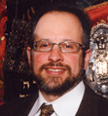
View current news articles, commentary, videos and more that have an impact on Jewish culture, politics and religion at Rabbi Silverman's Sites to See
Some thoughts on “Receiving Torah”
May 30 was our Tikun Leil Shavuot, and on June 1, we received the Torah, standing at our seats, as we read and trumpeted the moments when our ancestors accepted Torah with a triumphant “we will do and we will hear!” Tradition tells us that so powerful were the words of the Ten Commandments that each commandment blew the Israelites back 19 parsangs (historical unit of distance). Their souls were drawn from their bodies and God would not allow their souls to receive any new commandments. This sequential resuscitation was apparently very grueling, so they asked Moses to go up the mountain, into the fog, to receive the Torah for them. Rav Nachman of Bratzlav points out that God really wished all the people to climb the mountain with Moses and converge at the apex of Sinai, and if that had happened, we would have found a return to full redemption and purity (“when the Shofar sounds louder and louder…they should climb the mountain”). But the opportunity was lost and we must settle for understanding the Torah, not directly from the source, but through interpretation and insight.
Rabbi Levi Ischak asks the question, “Why, in beginning the counting of the Omer, don’t we recite the Shechehiyanu prayer?” The answer he gives is that the counting begins the journey and one must say a Shechehiyanu only at the end of a journey in the reception of Torah. But the reception of the Torah is, really, a never-ending proposition. Every Jew is called upon to have an open heart, to learn something new–something more nuanced and refined. Our Torah education is endless in each life and for all time. That is why there is no holiday called Hag Kabbalat Hatorah (holiday to welcome the Torah into our lives). Only Hag Natan Torah (holiday of being given the Torah). God gives the Torah endlessly. Our reception of it must be each and every day, with a newly opened mind and heart.
Years ago, here and in Israel, scientists and mathematicians were hard at work in cracking the secret code of the Bible. A book was released that got everyone excited, a New York Times bestseller, Bible Code, by Michael Drosnin, who is a Wall Street Journal reporter. Inspired by the work of Prof. Eliyahu Ripps, he suggested a formula to understand the present and predict the future. With the help of systematic computer analysis, all the letters of the Torah were scanned backwards and forwards, in a consistent pattern, to yield messages. Hits showed famous names like “Rabin” and “Kennedy,” and important natural disasters. Even the Persian Gulf War was foretold! This gave a new meaning to the words of our sages, “turn it and turn it, 'cause all is in it.” But that misses the point. I am reminded of the use of the High Priest’s Urim and Thummim (divine oracle on the High Priest’s breastplate), with letters lighting up. For my money, I think the words of Isaiah, the trenchant insight of Jeremiah, and the mystical imagination of Ezekiel, were far more penetrating.
A sage commented on the words from our Torah, “Moses would speak to God, and God would answer him in thunder (Hashem Yaanenu beKol),” saying, “Moses would speak and God would answer him in his own voice!” All of us must study the words of Torah carefully and repeatedly, but true wisdom is not acquired by how much Torah you can master and retain, how much Torah or Talmud a person can get through. Rather, wisdom comes from how much the Torah and the Talmud goes through you! Our experience and our thought processes help make Torah new each day! The insights you bring to the text are the Torah coming “through your voice.”
And your voice isn’t just your opinion, but a close reading of the text. It’s the ideas of those who preceded us. The commentaries are abundant with detective work. The Israelites came from Refidim, many encamping at Sinai as one, a singular unity–that is detective work. When God made the first day of creation, it was called Yom Echad, Day One. But Yom Rishon, The First Day, is also when the Israelites made the tabernacle and the tribe of Judah came with their gifts. This is because until we had a sanctuary, God was Echad, alone and singular. Once we had a sanctuary, it was the first day of being together–we gave God company–that’s detective work. Why does God transcend gender? This is because it says that He created us “as a Divine reflection,” male and female he created us. Therefore, God is inclusive of all gender and not gender specific–that’s detective work. Your voice is also, however, your own insights, generated by your own life experience and thought. Don’t, for a moment, diminish this. It’s unique to you!
Receiving the Torah at Sinai is for the human mind to unravel, and I have every conviction that this occasion holds even more than the seventy facets that our sages claim it has. But it did not happen in heaven and nor beyond the sea. Nor is it in a logarithm or in a spreadsheet computer analysis. The Torah was not given for the purpose of taking every nth letter and seeing a pattern. It is decipherable and continues to be decipherable with the intellectual, emotional and experiential equipment we have, and it expands with the help of new insights as we move through time. Because all is in it, including your insights.
As the Talmud teaches, “May your eyes sparkle with the light of Torah and your ears hear the music of its words. May the space between each letter in the scrolls bring warmth and comfort to your soul…and may your study be passionate and meanings bear more meanings, until life arrays itself to you as dazzling wedding feast…”
–A feast of your own Torah insights and wisdom, and to that we say, Amen.
